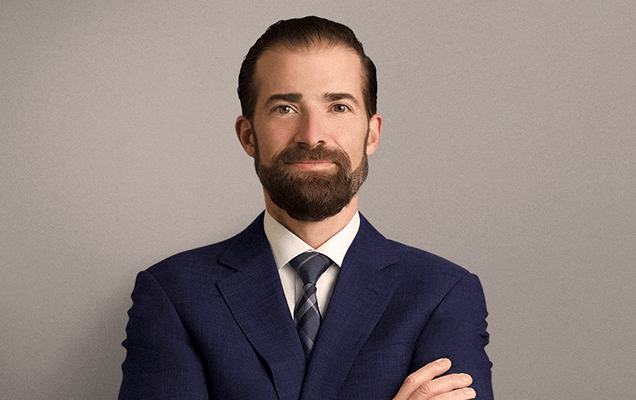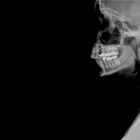Geniculate neuralgia, a painful condition that is also known as nervus intermedius neuralgia or geniculate ganglionitis, can be difficult to diagnose and even harder to treat. The disorder centers around extreme pain occurring deep within the ear — many patients describe it as feeling like an ice pick is being shoved in their ear canal. Like other forms of facial neuralgias, geniculate neuralgia pain can range from sharp but intermittent pangs of pain to constant high-level pain. Let’s discuss what else you can expect from your geniculate neuralgia diagnosis and the treatments currently in use.
Symptoms of Geniculate Neuralgia
The nervus intermedius nerve helps carry sensations related to facial movement and taste. That means that in addition to pain within your ear, you may also suffer from facial pain, bad tastes in your mouth or excessive salivation. More commonly, you might experience ringing in your ears (tinnitus) or a feeling like the world is spinning around you (vertigo). Track your symptoms so you can discuss their frequency and severity with your neurologist and neurosurgeon. Those notes can help to isolate geniculate neuralgia as your doctor works through differential diagnoses that include other disorders.
Causes of Geniculate Neuralgia
Most cases of geniculate neuralgia stem from a blood vessel impinging on the nervus intermedius nerve. In addition, cases of geniculate neuralgia may be related to a diagnosis of Ramsay Hunt syndrome. Ramsay Hunt syndrome is itself caused by the same virus responsible for chickenpox and shingles. Finally, like other neuralgias, geniculate neuralgia may be idiopathic — a fancy way of saying “cause unknown.”
Are you out of options
to eliminate your pain?
Medical Management of Geniculate Neuralgia
Geniculate neuralgia treatment begins with medications that can disrupt painful nerve sensations. Commonly, medications that work best are those primarily used in seizure disorders, such as Trileptal and Tegretol. Neurontin may also be effective for some cases. Narcotic pain medications may seem like the simplest solution, but they only dull or mask the pain — they don’t get to the root cause. Narcotic pain medications also carry a high risk of dependency.
Medical management of geniculate neuralgia may fail for several reasons. First, the medications prescribed by your neurologist may not work right from the start. Second, your body may acclimate to doses of medication over time, resulting in higher doses that may not keep pace with your heightening pain. And finally, the side effects of the medications commonly used to treat geniculate neuralgia may overwhelm the positive benefits. Side effects such as dizziness, an intoxicated feeling or a fuzzy mind are the most common, especially at higher level doses.
Surgery for Geniculate Neuralgia
Microvascular Decompression
When medical management fails, you’ll be referred to a neurosurgeon to discuss surgical options for your diagnosis. Geniculate neuralgia treatment typically begins with microvascular decompression. During this procedure, an entrance to your skull is created behind the affected ear. Then, the impingement is verified using real-time imaging. Once located, the blood vessel causing the impingement is separated from the nervus intermedius nerve with a surgical sponge.
Microvascular decompression is considered a major surgery, simply because it involves opening your skull. It is a highly effective treatment, however, with 90 percent of patients realizing partial or full pain relief. After the passage of several years, that success rate only dips by a few percentage points. At the time of your treatment, you’ll likely spend a couple days in the hospital post-op so you can be closely monitored as your healing begins.
A Path Away From Pain
Discuss your health history thoroughly with your neurologist or neurosurgeon to determine the best path away from pain for your case. Geniculate neuralgia treatment plans are not one-size-fits-all — you’ll want to pursue the best treatments for your unique case. Between open communication, symptom tracking and radiological imaging, your doctor will be prepared to help you pick the right option to pursue.

About Dr. Anthony D'Ambrosio
Dr. Anthony D'Ambrosio is an accomplished neurosurgeon in North Jersey and a proud member of Neurosurgeons of New Jersey practicing primarily out of their Ridgewood office conveniently located on East Ridgewood Avenue. Dr. D’Ambrosio focuses his clinical practice on brain tumors, nervous system disorders, and facial pain disorders. He has expertise in a variety of complex surgical and radiosurgical techniques as well as minimally invasive procedures intended to successfully treat complex diseases of the brain. These techniques include micro-neurosurgery, microvascular decompression surgery and Gamma Knife radiosurgery. He's authored over 25 peer-reviewed journals and is the recipient of many awards.
Recent Posts:






